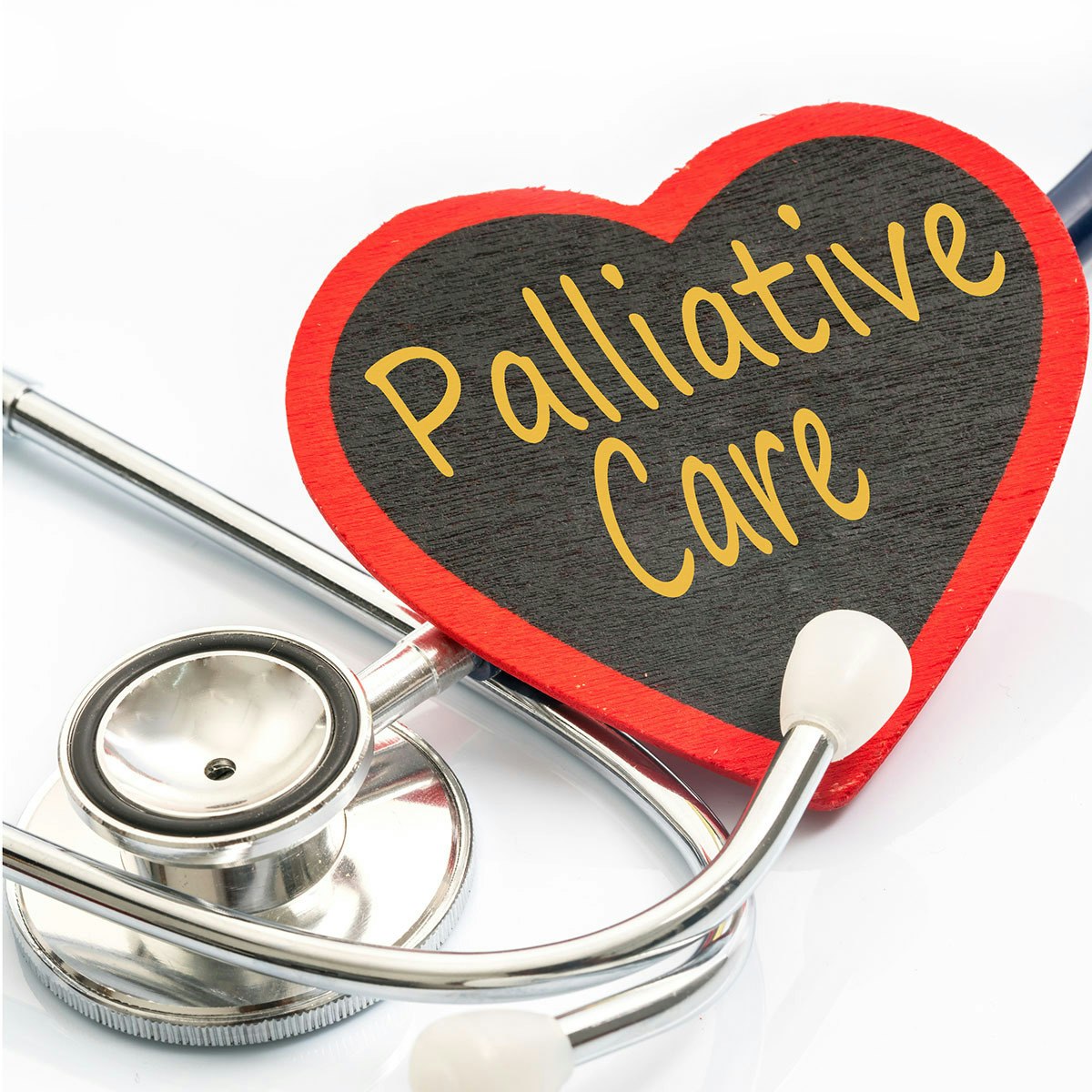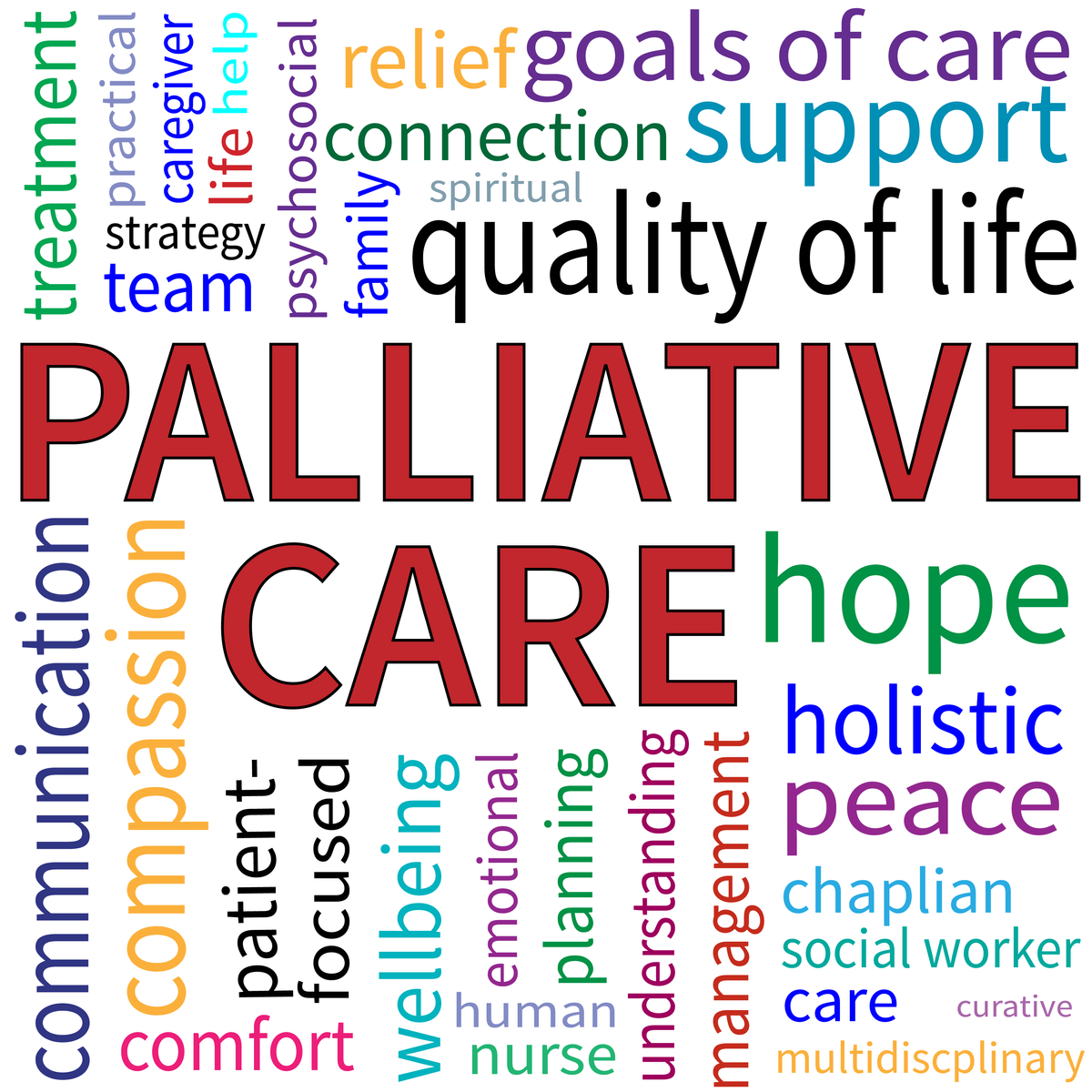Palliative Care Nurse
Exploring a Career as a Palliative Care Nurse
Palliative care nursing is a specialized field focused on improving the quality of life for patients facing serious, often life-limiting illnesses. These dedicated nurses work to manage symptoms, alleviate suffering, and provide crucial support not just to patients, but also to their families. It's a role centered on holistic care, addressing physical, emotional, social, and spiritual needs comprehensively.
Working in palliative care offers the profound opportunity to make a meaningful difference during vulnerable times in people's lives. It involves deep interpersonal connections, complex problem-solving around symptom management, and advocating for patient comfort and dignity. This career path is both demanding and deeply rewarding, attracting individuals driven by compassion and a desire to provide comfort-focused care.
Introduction to Palliative Care Nursing
Defining the Scope of Palliative Care Nursing
Palliative care nursing aims to enhance the quality of life for individuals confronting serious illnesses, such as cancer, heart failure, chronic obstructive pulmonary disease (COPD), kidney disease, Alzheimer's, Parkinson's, and many others. The focus extends beyond the purely medical to encompass the whole person. This includes meticulous management of pain and other distressing symptoms like nausea, fatigue, and shortness of breath.
It also involves providing essential emotional and psychological support to help patients and families cope with the stress of illness. Palliative care nurses facilitate communication, help navigate complex medical decisions, and coordinate care among various healthcare providers. Their work ensures that care aligns with the patient's values, goals, and preferences.
This specialized nursing practice is applicable early in the course of illness, often in conjunction with curative treatments. It is about living as well as possible, for as long as possible, regardless of the prognosis. The goal is support, comfort, and dignity throughout the illness journey.
The Evolution of Palliative Care in Healthcare
Palliative care as a formal specialty is relatively young, evolving significantly over the past few decades. Initially closely associated with hospice care, which focuses on the end of life, palliative care has broadened its scope. It emerged from the recognition that patients with serious illnesses needed better symptom management and support earlier in their disease trajectory.
Dame Cicely Saunders, founder of the modern hospice movement in the UK in the 1960s, laid much of the groundwork. Her emphasis on "total pain"—encompassing physical, emotional, social, and spiritual dimensions—revolutionized care for the dying. This philosophy gradually influenced mainstream medicine, leading to the development of palliative care as a distinct specialty.
Today, palliative care is integrated into various healthcare settings, including hospitals, outpatient clinics, long-term care facilities, and homes. Its growth reflects an increasing understanding of the importance of patient-centered care that prioritizes quality of life alongside medical treatment.
Palliative Care vs. Hospice Care: Understanding the Difference
A common point of confusion is the distinction between palliative care and hospice care. While both share similar philosophies of comfort and support, they differ primarily in timing and eligibility. Palliative care can be provided at any stage of a serious illness, even alongside treatments aimed at cure or prolonging life.
Hospice care, on the other hand, is a specific type of palliative care provided when curative treatments are no longer being pursued, and the focus shifts entirely to comfort and quality of life for the time remaining. Typically, hospice eligibility requires a prognosis of six months or less if the illness runs its natural course.
Think of palliative care as a broader umbrella of supportive care that can be initiated early. Hospice care falls under this umbrella but is specifically designed for the final phase of life. Both aim to provide compassionate, holistic care tailored to the individual's needs.
Understanding this difference is crucial for patients, families, and healthcare professionals to ensure appropriate care is accessed at the right time. Many organizations like the Center to Advance Palliative Care (CAPC) offer resources to clarify these services.
Core Goals and Societal Relevance
The primary goals of palliative care nursing revolve around optimizing patient comfort and well-being. This involves expert assessment and management of pain and other symptoms, using pharmacological and non-pharmacological approaches. Facilitating clear communication and shared decision-making between patients, families, and the healthcare team is paramount.
Supporting emotional, psychosocial, and spiritual needs is another core objective. Palliative care nurses provide a compassionate presence, offer counseling, and connect patients and families with resources like social workers or chaplains. They advocate fiercely for the patient's wishes regarding their care, ensuring dignity and autonomy are respected.
The relevance of palliative care is growing significantly due to demographic shifts, particularly aging populations in many parts of the world. As more people live longer with complex chronic illnesses, the need for specialized care focused on quality of life, symptom management, and support becomes increasingly vital. Palliative care addresses this need, improving patient outcomes and potentially reducing healthcare costs by avoiding unnecessary hospitalizations.
Key Responsibilities and Duties
Mastering Symptom Management
A central responsibility for palliative care nurses is the expert management of distressing symptoms. This requires sophisticated assessment skills to understand the patient's experience of pain, nausea, fatigue, shortness of breath, anxiety, depression, and other issues. Nurses must be knowledgeable about various interventions, including medications and non-drug therapies.
Pain management, for example, might involve carefully titrating opioid dosages, utilizing adjuvant medications, or exploring complementary therapies like massage or relaxation techniques. Managing shortness of breath could involve oxygen therapy, positioning, breathing exercises, and medications to ease the sensation of breathlessness. Each plan is highly individualized.
Effective symptom control significantly impacts a patient's ability to engage in meaningful activities and maintain their quality of life. It requires ongoing assessment, adjustment of the care plan, and close collaboration with physicians and pharmacists.
These courses provide foundational knowledge in understanding and addressing the complex symptoms faced by patients in palliative care.
Collaboration within the Interdisciplinary Team
Palliative care is inherently a team-based approach. Nurses work closely alongside physicians, social workers, chaplains, pharmacists, physical therapists, and other specialists. Each team member brings unique expertise to address the multifaceted needs of patients and families.
The nurse often acts as a central coordinator, facilitating communication among team members and ensuring the care plan is cohesive and integrated. Regular team meetings are common to discuss patient progress, adjust care plans, and provide mutual support. Effective teamwork relies on respect, clear communication, and a shared commitment to the patient's goals.
This collaborative model ensures that care is holistic, addressing not just physical symptoms but also psychosocial, spiritual, and practical concerns. The nurse's ability to navigate these team dynamics is crucial for providing seamless and comprehensive care.
Educating and Supporting Patients and Families
Palliative care nurses play a vital role in educating patients and their families about the illness, treatment options, and what to expect. They translate complex medical information into understandable terms, empowering patients to participate actively in their care decisions. This education includes explaining the purpose of palliative care and how it can help.
Nurses also teach practical caregiving skills, such as medication administration or managing side effects at home. They provide emotional support, listening empathetically to concerns and fears, and helping families navigate the challenges of serious illness. This support extends to bereavement care after a patient has died.
Building trusting relationships through effective communication is fundamental. This involves active listening, demonstrating empathy, and being sensitive to cultural and personal values that influence care preferences.
These resources delve into the crucial communication and psychosocial aspects central to supporting patients and families effectively.
Advocating for Patient Dignity and Autonomy
Advocacy is a cornerstone of palliative care nursing. Nurses champion the patient's right to make informed decisions about their care, even when those decisions differ from the recommendations of the medical team or the wishes of family members. They ensure the patient's voice is heard and their values are respected.
This includes facilitating discussions about goals of care and advance care planning, helping patients articulate their preferences for future medical treatments through documents like living wills or durable power of attorney for healthcare. The nurse ensures these wishes are documented and communicated to the entire care team.
Upholding patient dignity involves providing care that is respectful, compassionate, and preserves the patient's sense of self-worth. This can mean simple acts like ensuring privacy, managing symptoms effectively so the patient can interact meaningfully, or supporting choices that align with their life story and values.
Documentation and Care Coordination
Accurate and thorough documentation is essential in palliative care nursing. Nurses meticulously record patient assessments, interventions, responses to treatment, communication with patients and families, and care plan updates. This documentation ensures continuity of care and provides a legal record of the services provided.
Care coordination involves organizing appointments, liaising with different specialists, arranging for necessary equipment or home services, and ensuring smooth transitions between care settings (e.g., hospital to home hospice). The nurse acts as a navigator, helping patients and families manage the complexities of the healthcare system.
Effective coordination prevents fragmentation of care, reduces patient and family stress, and ensures that all aspects of the patient's needs are addressed in a timely and efficient manner. Strong organizational and communication skills are key to this aspect of the role.
Education and Certification Pathways
Foundation: Earning Your Nursing Degree
The journey to becoming a palliative care nurse begins with foundational nursing education. Typically, this involves earning either an Associate Degree in Nursing (ADN) or a Bachelor of Science in Nursing (BSN). While an ADN allows entry into the profession, a BSN is increasingly preferred by employers, particularly hospitals, and is often required for advancement into specialized or leadership roles.
BSN programs generally offer a broader education, including coursework in nursing theory, research, leadership, and community health, which can be beneficial for the complexities of palliative care. Many nurses initially earn an ADN and then pursue an RN-to-BSN bridge program, often available online, while working.
Regardless of the initial degree path, the curriculum will cover fundamental nursing skills, anatomy, physiology, pharmacology, and patient assessment – all essential for any nursing specialty, including palliative care.
Licensure: Becoming a Registered Nurse (RN)
After completing an accredited nursing program (ADN or BSN), graduates must pass the National Council Licensure Examination for Registered Nurses (NCLEX-RN). Passing this standardized exam is required to obtain a license to practice as a Registered Nurse (RN).
Licensure requirements are determined by each state's Board of Nursing. While the NCLEX-RN is nationally standardized, specific requirements for eligibility, application processes, fees, and background checks can vary slightly by state. It's crucial to check the requirements for the specific state where you intend to practice.
Maintaining an active RN license typically involves periodic renewal, which often requires completing a certain number of continuing education hours. This ensures nurses stay current with best practices and advancements in healthcare.
Specialization: Palliative Care Certification
While a general RN license allows you to work with palliative care patients, obtaining specialized certification demonstrates advanced knowledge and commitment to the field. The most recognized certification is the Certified Hospice and Palliative Nurse (CHPN), offered by the Hospice and Palliative Credentialing Center (HPCC).
Eligibility for the CHPN exam typically requires an active RN license and a specific number of hours of practice experience in hospice and palliative nursing within a recent timeframe. There are also advanced certifications available for nurses with master's (APRN-ACHPN) or doctoral degrees.
Certification validates expertise in areas like pain and symptom management, ethical considerations, communication, and care coordination specific to palliative care. It can enhance career opportunities and demonstrate a high level of competence to employers, patients, and families. Information about certification can be found at the Hospice and Palliative Credentialing Center.
Gaining Clinical Experience
Hands-on clinical experience is indispensable. Nursing school includes clinical rotations in various settings, but specific experience in palliative care or related fields like oncology, critical care, or geriatrics is highly valuable. Many nurses transition into palliative care after gaining experience in these areas.
Seeking out roles in hospitals with dedicated palliative care teams, hospice agencies, or long-term care facilities with palliative programs provides direct exposure. Some organizations may offer fellowship programs or specialized orientation for nurses new to palliative care.
Volunteering with a hospice or palliative care organization can also offer valuable insights and experience, particularly for students or those considering a career change. This practical experience solidifies theoretical knowledge and develops essential clinical judgment and communication skills.
The Importance of Continuing Education
Palliative care is a dynamic field with ongoing research and evolving best practices. Lifelong learning through continuing education (CE) is crucial for maintaining competence and providing the highest quality care. State nursing boards require CE for license renewal, and certification bodies also mandate specific CE hours for recertification.
CE opportunities can range from attending conferences and workshops to completing online modules and reading professional journals. Topics might include new approaches to symptom management, advances in communication techniques, updates on ethical guidelines, or strategies for self-care and resilience.
Engaging actively in continuing education demonstrates professionalism and ensures that palliative care nurses remain equipped with the latest knowledge and skills to meet the complex needs of their patients.
Career Progression and Opportunities
Starting Your Palliative Care Journey
Most nurses enter palliative care after gaining some experience as an RN in other settings, such as medical-surgical units, oncology, or critical care. Entry-level positions might involve working as a staff nurse on a hospital-based palliative care consult team, in an inpatient hospice unit, or as a home hospice nurse.
These initial roles provide foundational experience in applying palliative care principles, managing common symptoms, communicating with patients and families facing serious illness, and collaborating within the interdisciplinary team. Mentorship from experienced palliative care nurses is often a key component of orientation in these roles.
Developing strong assessment, communication, and critical thinking skills is essential during this phase. Building resilience and learning effective coping strategies for the emotional demands of the work also begins here.
Advancing Your Practice
With experience and often further education (such as a Master of Science in Nursing - MSN), palliative care nurses can move into advanced practice roles. This might include becoming a Palliative Care Clinical Nurse Specialist (CNS) or a Nurse Practitioner (NP) specializing in palliative care (APRN-ACHPN).
Advanced practice nurses often have greater autonomy, taking lead roles in complex symptom management, leading family meetings, developing care protocols, and providing expert consultation to other healthcare providers. They may manage their own panel of patients in outpatient clinics or lead inpatient consult services.
These roles typically require graduate-level education focused on advanced assessment, pharmacology, and pathophysiology, along with specialized palliative care coursework and clinical training.
Leadership and Education Pathways
Experienced palliative care nurses may pursue leadership or educational roles. Opportunities exist as unit managers or directors of palliative care or hospice programs, overseeing clinical operations, staff management, budgeting, and quality improvement initiatives. Strong leadership and administrative skills are necessary for these positions.
Other nurses move into education, teaching palliative care principles to nursing students in academic settings or providing staff development and training within healthcare organizations. This requires a passion for teaching and mentoring, often coupled with advanced education (MSN or doctorate).
These roles allow nurses to influence the quality of palliative care on a broader scale, shaping programs and educating the next generation of caregivers.
Opportunities in Research and Policy
Some palliative care nurses contribute to the field through research or policy advocacy. Nurses with doctoral degrees (PhD or DNP) may conduct research to build the evidence base for palliative care interventions, improve understanding of patient experiences, or evaluate models of care delivery.
Others engage in policy work at local, state, or national levels, advocating for policies that improve access to and quality of palliative care services. This might involve working with professional organizations, government agencies, or non-profits to influence healthcare legislation and funding.
These pathways allow nurses to shape the future of palliative care by generating new knowledge and advocating for systemic changes that benefit patients and families.
Job Market Trends and Demand
The demand for palliative care services, and thus for palliative care nurses, is strong and expected to grow. Factors driving this include the aging population, the increasing prevalence of chronic diseases, and growing recognition of the benefits of palliative care for improving patient outcomes and satisfaction.
According to the U.S. Bureau of Labor Statistics, overall employment for Registered Nurses is projected to grow, and specialized fields like palliative care are key areas within this growth. Opportunities exist across various settings, including hospitals, hospice agencies, home health organizations, long-term care facilities, and outpatient clinics.
Geographic location, years of experience, level of education, and certification status all influence specific job opportunities and salary ranges. However, the overall trend indicates a robust job market for nurses with expertise in palliative care.
Ethical Considerations in Palliative Care Nursing
Navigating Complex End-of-Life Decisions
Palliative care nurses are frequently involved in conversations about difficult end-of-life decisions. This may include discussions about withdrawing or withholding life-sustaining treatments, preferences for resuscitation (DNR orders), or transitioning to comfort-focused care. These situations require exceptional communication skills and ethical sensitivity.
Nurses must ensure patients have the capacity to make decisions, receive adequate information about their options, and that their choices are voluntary and informed. They support patients in articulating their values and goals, helping align medical treatments with what matters most to the individual. Facilitating communication between patients, families, and physicians is often key.
Ethical principles like autonomy (respecting patient self-determination), beneficence (acting in the patient's best interest), non-maleficence (avoiding harm), and justice (fairness) guide practice in these complex scenarios.
This book provides valuable insights into the ethical dimensions inherent in palliative care.
Balancing Beliefs and Medical Advice
Patients and families bring diverse cultural, religious, and personal beliefs to the healthcare setting, which significantly influence their views on illness, suffering, and death. Palliative care nurses must be adept at providing culturally sensitive care that respects these diverse perspectives.
Sometimes, a patient's or family's beliefs may conflict with medical recommendations or standard practices. Nurses must navigate these situations respectfully, seeking to understand the underlying values and finding common ground where possible. This may involve collaborating with chaplains or cultural liaisons.
The goal is not to impose a particular viewpoint but to facilitate shared decision-making that honors the patient's identity and values while providing appropriate medical care. Open, non-judgmental communication is crucial.
Confidentiality and Communication Challenges
Maintaining patient confidentiality is a fundamental ethical obligation. In palliative care, complex family dynamics can sometimes create challenges around information sharing. Nurses must be clear about who the patient has designated to receive information and make decisions if they become incapacitated.
Communication itself can be ethically fraught. Delivering difficult news, discussing prognosis honestly yet compassionately, and managing disagreements within families require skill and sensitivity. Nurses must strive for transparency while being mindful of the emotional impact of information.
Ensuring clear and accurate communication among all members of the interdisciplinary team is also an ethical imperative to ensure safe and coordinated care.
Understanding and Addressing Moral Distress
Moral distress occurs when nurses know the ethically correct action to take but feel constrained from doing so by institutional obstacles, lack of resources, interpersonal conflicts, or legal limitations. This is a common experience in palliative care due to the high-stakes nature of decisions and the emotional intensity of the work.
Situations like feeling pressured to provide aggressive treatments perceived as futile, witnessing unrelieved suffering, or navigating family conflicts can lead to moral distress. Unaddressed, it can contribute to burnout, compassion fatigue, and job dissatisfaction.
Recognizing the signs of moral distress and having strategies to address it, such as team debriefings, ethics consultations, peer support, and self-care practices, are essential for sustainability in the field. Many healthcare ethics resources, like those from The Hastings Center, explore this topic.
Legal Frameworks: Advance Directives and More
Palliative care nurses must be knowledgeable about the legal frameworks relevant to their practice, particularly concerning advance care planning. This includes understanding state laws regarding advance directives, such as living wills and durable power of attorney for healthcare.
They assist patients in completing these documents and ensure they are appropriately implemented in the care plan. Nurses also need to understand laws related to informed consent, capacity assessment, and guardianship when patients are unable to make their own decisions.
Familiarity with legal requirements helps nurses advocate effectively for patient rights and ensures care aligns with both ethical principles and legal mandates.
Challenges and Emotional Demands
Coping with Patient Mortality and Grief
Working closely with patients facing serious illness inevitably involves experiencing loss and grief. Palliative care nurses frequently witness suffering and death, which can take a significant emotional toll. Developing healthy coping mechanisms is essential for longevity in this field.
Acknowledging the emotional impact, allowing oneself to grieve, and seeking support from colleagues, mentors, or mental health professionals are important strategies. Rituals, such as attending memorial services or team debriefings after a patient's death, can also help process these experiences.
While challenging, bearing witness to the end of life can also be profoundly meaningful. Many nurses find deep satisfaction in providing comfort and support during this significant life transition.
These books offer perspectives on mortality and the experience of dying, which can be helpful for caregivers.
Preventing Burnout and Compassion Fatigue
The intense emotional and ethical demands of palliative care put nurses at risk for burnout and compassion fatigue. Burnout is characterized by emotional exhaustion, depersonalization, and a reduced sense of personal accomplishment. Compassion fatigue involves a diminished capacity for empathy due to prolonged exposure to trauma and suffering.
Prevention strategies are crucial. These include setting realistic boundaries between work and personal life, practicing regular self-care (exercise, hobbies, mindfulness), utilizing vacation time, and seeking support when needed. Strong teamwork and supportive leadership within the workplace are also vital protective factors.
Recognizing early warning signs and proactively implementing coping strategies can help nurses maintain their well-being and continue to provide compassionate care sustainably.
Maintaining Work-Life Balance
Achieving a healthy work-life balance can be particularly challenging in demanding fields like palliative care nursing. Long hours, emotionally taxing situations, and the feeling of never being "done" can easily lead to work encroaching on personal time.
Conscious effort is required to protect personal time and engage in restorative activities outside of work. This might involve scheduling regular downtime, pursuing hobbies, spending quality time with loved ones, and learning to say no to extra commitments when necessary.
Organizations can support work-life balance through adequate staffing, reasonable workloads, flexible scheduling options where possible, and fostering a culture that values employee well-being.
The Importance of Support Systems
Strong support systems, both professional and personal, are invaluable for palliative care nurses. Collegial support within the interdisciplinary team provides a space to share experiences, debrief challenging cases, and offer mutual encouragement. Mentorship from experienced nurses can also provide guidance and perspective.
Personal support systems—friends, family, partners—offer emotional grounding and a connection to life outside of work. Engaging in peer support groups specifically for palliative care professionals can also be beneficial for sharing challenges and strategies with others who truly understand the work.
Having robust support networks helps nurses process difficult emotions, gain perspective, and build resilience against the stresses of the job.
This book offers insights into the importance of self-care for those in helping professions.
Impact on Personal Well-being
The nature of palliative care nursing can profoundly impact a nurse's personal well-being, both positively and negatively. Witnessing resilience, love, and meaning at the end of life can be deeply inspiring and foster personal growth, gratitude, and a richer perspective on life.
However, the exposure to suffering, loss, and ethical dilemmas can also lead to stress, anxiety, sadness, or questioning one's own values or spirituality. It's crucial for nurses to monitor their own emotional health and seek help if they are struggling.
Prioritizing self-care, maintaining strong support systems, and finding meaning both within and outside of work are key to navigating the personal impact of this demanding yet rewarding career.
Emerging Trends in Palliative Care
Integration of Telehealth and Remote Monitoring
Technology is increasingly playing a role in palliative care delivery. Telehealth platforms allow nurses and physicians to conduct virtual visits, monitor symptoms remotely, and provide support to patients and families in their homes. This can improve access to care, especially for those in rural areas or with mobility limitations.
Remote monitoring devices can track vital signs or specific symptoms, alerting the care team to potential issues early. While technology cannot replace the human touch essential in palliative care, it can supplement in-person visits and enhance continuity of care.
Challenges include ensuring equitable access to technology, maintaining privacy and data security, and integrating virtual care seamlessly with traditional models.
Personalized Pain Management Technologies
Advances in technology are also leading to more personalized approaches to pain management. This includes sophisticated patient-controlled analgesia (PCA) pumps, wearable sensors that monitor pain levels or medication effects, and even virtual reality (VR) applications being explored for pain distraction.
Pharmacogenomics, the study of how genes affect a person's response to drugs, holds promise for tailoring pain medication selection and dosage more precisely to individual patients, potentially improving efficacy and reducing side effects.
These innovations aim to provide more effective and individualized symptom relief, further enhancing patient comfort and quality of life.
Policy Shifts Affecting Funding and Access
Healthcare policy significantly impacts the availability and delivery of palliative care. Ongoing advocacy efforts focus on securing better reimbursement models for palliative care services, promoting integration into standard medical care, and ensuring adequate funding for research and workforce development.
Changes in Medicare, Medicaid, and private insurance policies can affect patient access and the financial viability of palliative care programs. Nurses often play a role in advocating for policies that support comprehensive palliative care through professional organizations and direct engagement with policymakers.
Staying informed about relevant health policy developments is important for palliative care professionals to understand the context in which they practice and contribute to efforts aimed at improving access and quality.
Addressing Global Disparities in Palliative Care
Access to palliative care remains highly uneven across the globe. While well-established in many high-income countries, palliative care services are scarce or non-existent in many low- and middle-income nations. This results in immense unrelieved suffering for millions facing serious illness.
International organizations and initiatives are working to address these disparities by promoting palliative care education, supporting program development, advocating for national policies, and improving access to essential medications like morphine.
Global health efforts increasingly recognize palliative care as an essential component of universal health coverage and a fundamental human right.
Artificial Intelligence in Symptom Prediction
Artificial intelligence (AI) and machine learning are beginning to be explored for their potential applications in palliative care. AI algorithms could potentially analyze patient data to predict symptom trajectories, identify patients who might benefit from palliative care earlier, or optimize treatment plans.
For example, AI might help predict which patients are at high risk for developing severe pain or delirium, allowing for proactive interventions. It could also assist in analyzing large datasets to identify patterns and improve understanding of palliative care needs at a population level.
While still in early stages, AI holds potential to augment clinical decision-making and improve the efficiency and effectiveness of palliative care delivery, though ethical considerations around data privacy and algorithmic bias must be carefully addressed.
Online Learning and Skill Development
Pursuing Certifications Through Online Programs
For working RNs seeking to specialize or advance their careers, online learning offers flexible pathways. Many universities offer accredited RN-to-BSN or MSN programs with specializations relevant to palliative care, such as gerontology or oncology, entirely online. Some institutions may also offer specific post-graduate certificates in palliative care online.
Online formats allow nurses to balance education with work and family responsibilities. When choosing an online program, it's crucial to ensure it is accredited by a recognized nursing body (like the CCNE or ACEN) to guarantee quality and eligibility for certification exams or further education.
OpenCourser helps learners explore numerous courses in health and medicine, including those relevant to nursing and specialized care areas.
Building Essential Skills: Communication and Empathy
Effective communication and empathy are arguably the most critical skills in palliative care nursing. Online courses can provide valuable training in these areas, covering topics like active listening, delivering difficult news, facilitating goals-of-care conversations, and navigating family dynamics.
Many platforms offer courses focused specifically on healthcare communication or therapeutic communication techniques. Role-playing exercises, case studies, and reflective practices included in these courses can help learners hone their interpersonal skills in a safe environment.
Developing empathy involves understanding and sharing the feelings of another. Online resources might explore cultivating empathetic responses, understanding cultural nuances in communication, and managing emotional responses compassionately.
These courses offer structured learning for foundational palliative care knowledge and communication skills, often available through flexible online platforms.
Utilizing Virtual Simulations for Clinical Training
Virtual simulation technology is increasingly used in nursing education, including for palliative care training. These simulations allow learners to practice complex clinical scenarios, such as managing a patient crisis or navigating a difficult family meeting, in a realistic yet risk-free virtual environment.
Simulations can provide immediate feedback and allow for repeated practice to build confidence and competence. While they cannot fully replace hands-on clinical experience, they serve as a valuable supplement, particularly for developing decision-making and communication skills in challenging situations.
Some online courses or programs may incorporate virtual simulation components to enhance the learning experience.
Supplementing Education with Micro-Credentials
Beyond full degree programs or formal certifications, nurses can enhance their skills through shorter, focused online courses or micro-credentials. These might cover specific topics like advanced pain management techniques, pediatric palliative care, bereavement support, or ethical dilemmas.
Platforms like Coursera, edX, or specialized professional development providers offer numerous short courses, some leading to certificates of completion. These can be a flexible way to deepen knowledge in a particular area or stay current with emerging trends without committing to a lengthy program.
OpenCourser's Learner's Guide offers tips on how to structure self-learning and make the most of online educational resources, including micro-credentials.
Completing a capstone project, often available through online specializations, allows learners to apply their accumulated knowledge to a real-world scenario or project, solidifying their skills.
Choosing Between Self-Paced and Cohort-Based Models
Online learning comes in various formats. Self-paced courses allow learners to progress through material at their own speed, offering maximum flexibility. This model suits highly motivated, independent learners with variable schedules.
Cohort-based models involve progressing through the course with a group of peers, often with set deadlines and scheduled interactions like discussion forums or live sessions. This format provides more structure, peer support, and opportunities for collaborative learning, which some learners prefer.
Choosing the right model depends on individual learning styles, time availability, and preference for interaction versus independence. Many platforms offer both types of experiences.
Work Environments and Settings
Diverse Practice Locations: Hospitals, Hospices, Homes
Palliative care nurses practice in a wide range of settings. In hospitals, they might be part of an inpatient consult team, working with patients across different units, or staff a dedicated acute palliative care unit. Their focus is often on complex symptom management and facilitating goals-of-care discussions during acute illness.
Hospice facilities provide specialized inpatient care for patients nearing the end of life whose symptoms cannot be managed at home. Nurses in this setting provide intensive comfort care and support to patients and families during the final days or weeks.
Many palliative care and hospice nurses work in home care, visiting patients where they live. This involves providing direct care, teaching families, managing symptoms in the home environment, and coordinating with other community resources. This setting offers significant autonomy.
Rural vs. Urban Practice Considerations
The practice environment can differ significantly between rural and urban settings. Urban areas typically have more specialized palliative care programs, larger interdisciplinary teams, and greater access to resources and specialists. However, they may also face higher patient volumes and complexity.
Rural settings often present challenges related to geographic distances, limited access to specialists, and fewer dedicated palliative care resources. Nurses in rural areas may need broader skill sets and rely more heavily on telehealth or partnerships with larger centers. They often develop strong community ties but may face professional isolation.
Understanding these differences is important when considering job opportunities and practice preferences.
Shift Structures and Staffing Models
Work schedules for palliative care nurses vary by setting. Hospital-based nurses often work traditional 12-hour shifts, including nights, weekends, and holidays, similar to other acute care nurses. Those on consult teams might have more regular daytime hours but often share on-call responsibilities.
Home hospice and palliative care nurses typically work more standard weekday hours but often have significant on-call duties for after-hours patient needs. Inpatient hospice units may utilize 8-hour or 12-hour shift patterns, providing 24/7 coverage.
Staffing models aim to ensure safe and adequate coverage, but workloads can be demanding across all settings. Understanding the typical schedule and staffing expectations is key when evaluating potential positions.
Safety Protocols and Workplace Risks
Like all nursing roles, palliative care nursing involves potential workplace risks. These include exposure to infectious diseases, musculoskeletal injuries from lifting and repositioning patients, and potential exposure to hazardous medications. Adherence to standard precautions, safe patient handling techniques, and proper medication safety protocols is essential.
Home care nurses face additional safety considerations related to travel and working alone in potentially unfamiliar environments. Agencies typically have safety protocols in place, such as check-in procedures and safety training.
Beyond physical risks, the emotional toll and risk of burnout are significant occupational hazards that require proactive management through self-care and organizational support.
Navigating Interdisciplinary Team Dynamics
Working effectively within an interdisciplinary team is crucial but can also present challenges. Different professions may have varying perspectives, communication styles, or priorities. Healthy team dynamics rely on mutual respect, clear role definition, open communication, and effective conflict resolution skills.
Nurses often play a key role in fostering positive team dynamics due to their central position in patient care coordination. Strong collaboration enhances the quality of care and contributes to a more supportive work environment for everyone involved.
Understanding team roles and developing strong interpersonal skills are vital for navigating these dynamics successfully.
Frequently Asked Questions
What is the average salary for a Palliative Care Nurse?
Salaries for palliative care nurses vary based on factors like geographic location, years of experience, level of education (ADN vs. BSN vs. MSN), certification status (e.g., CHPN), and work setting. Generally, salaries are comparable to other RN specialties.
The U.S. Bureau of Labor Statistics provides overall salary data for Registered Nurses, which serves as a benchmark. Nurses with advanced degrees (NPs, CNSs) or certifications like CHPN typically command higher salaries. Researching salary ranges specific to your region and desired role using reputable sources is recommended.
Can I transition from another nursing specialty into palliative care?
Absolutely. Many, if not most, palliative care nurses transition from other specialties. Experience in areas like oncology, critical care, geriatrics, medical-surgical nursing, or home health provides a strong foundation of clinical skills and experience with seriously ill patients.
Making the transition often involves seeking additional education or training specific to palliative care principles, symptom management, and communication. Obtaining certification like the CHPN can solidify your expertise and enhance job prospects. Networking with palliative care professionals and seeking mentorship can also facilitate the transition.
Is a master’s degree required for advancement?
While a BSN is often sufficient for staff nurse roles in palliative care, a Master of Science in Nursing (MSN) or a Doctor of Nursing Practice (DNP) is typically required for advanced practice roles (Nurse Practitioner, Clinical Nurse Specialist) and many leadership, education, or research positions.
An advanced degree provides specialized knowledge and skills necessary for these higher-level roles, which involve greater autonomy and responsibility. Whether an MSN is "required" depends on your specific career goals within palliative care.
How does palliative care nursing differ internationally?
The scope, integration, and accessibility of palliative care vary significantly worldwide. High-income countries often have more established programs and defined roles for palliative care nurses, though models still differ.
In many low- and middle-income countries, palliative care is less developed, often relying heavily on community health workers or nurses with limited specialized training. Access to essential medications, particularly opioids for pain management, can be a major barrier.
Cultural norms surrounding death and dying also shape how palliative care is perceived and delivered globally. International organizations work to promote standards and support development, but practice realities differ greatly.
What personality traits align well with this role?
Successful palliative care nurses often share certain traits. Compassion and empathy are essential for connecting with patients and families during vulnerable times. Strong communication and interpersonal skills are crucial for building trust and navigating difficult conversations.
Resilience, emotional intelligence, and strong coping mechanisms help manage the emotional demands of the work. Critical thinking, problem-solving skills, and attention to detail are vital for complex symptom management and care coordination. Patience, advocacy skills, and respect for patient autonomy are also key characteristics.
Are there volunteer opportunities to gain experience?
Yes, volunteering is an excellent way to gain exposure to palliative care and hospice settings. Many hospice agencies rely heavily on volunteers for various roles, including patient companionship, respite for caregivers, administrative support, or bereavement services.
Volunteering provides valuable insight into the philosophy of care, the experiences of patients and families, and the dynamics of the interdisciplinary team. It can help you determine if this field is a good fit and provide meaningful experiences to discuss when applying for jobs or educational programs.
Embarking on a career as a Palliative Care Nurse is a commitment to providing compassionate, holistic care during life's most challenging moments. It requires specialized knowledge, exceptional interpersonal skills, and profound emotional resilience. While demanding, it offers the unique reward of making a deeply meaningful difference in the lives of patients and their families, ensuring comfort, dignity, and support when it matters most. Exploring resources on OpenCourser can help you find the educational tools to begin or advance your journey in this vital field.








